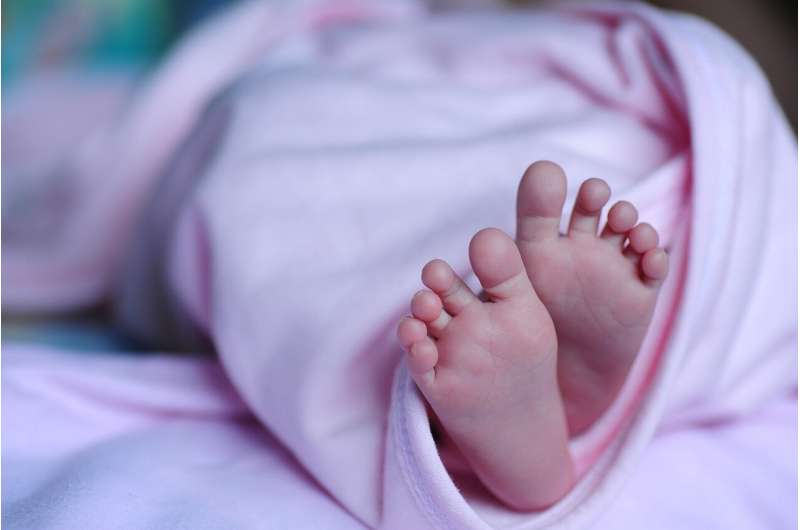This article has been reviewed according to Science X's editorial process and policies. Editors have highlighted the following attributes while ensuring the content's credibility:
fact-checked
peer-reviewed publication
trusted source
proofread
Fewer births on weekends and holidays than weekdays, data analysis of births from 1979–2018 in Japan shows

Significantly more babies were born on a weekday instead of weekend day or holiday, reveals a large-scale analysis of 21 million births in Japan over almost four decades published February 14, 2024 in the open-access journal PLOS ONE by Miho Sassa from the University of Tokyo, Japan, and colleagues.
Medical resources are generally stretched during holidays (including weekends) due to factors like staffing and hospital policies. This may amplify holiday effects: disparities and variations of health outcomes between holidays and weekdays. Dr. Sassa and colleagues studied this holiday effect with a focus on birth, especially high-risk births as measured by babies born preterm and/or with a low birthweight.
The authors used birth certificate data from over 21 million individuals born from 1979–2018 (which included birthday, birthweight, and gestational age) to categorize individuals into five groups: low birthweight (<2,500g), preterm birth (<37 weeks), low birthweight and preterm birth, and full-term birth.
For this analysis, the authors compared weekdays (Monday–Friday) with weekend days (Saturday and Sunday), national holidays, substitute holidays, Golden Week (four consecutive spring festival days in Japan April 29–May 5), and the new year period (December 29–January 3). Leap days and multiple births were excluded.
They found that all births were significantly less common on weekends or holiday periods versus weekends (p < 0.01). High-risk births became more frequent over the four decades studied, and the trend of non-weekend or holiday births was especially evident for high-risk births, which were found to take place particularly frequently on Thursday and Friday.
Though this study doesn't include data on medical interventions or pregnancies that didn't end in a live birth, which could potentially impact the findings, its broad scale suggests medical staff may often control births so that they take place before a weekend or holiday, especially for high-risk births.
The authors note that this may be prudent since there are often fewer staff or resources available on weekend/holiday days, but since some holiday births are inevitable, it's critical for hospitals to plan to minimize risks to those mothers who do give birth on non-weekdays.
The authors add, "Delving into decades of birth data in Japan, our research illuminates a fascinating trend—deliveries on holidays, especially those deemed high-risk, show a distinct decline. This discovery prompts a call for innovative solutions and systemic strategies to safeguard maternal and neonatal well-being anytime, demonstrating the need for creative thinking in optimizing medical resources for everyone."
More information: Holiday effect on childbirth: A population-based analysis of 21,869,652 birth records, 1979–2018, PLoS ONE (2024). DOI: 10.1371/journal.pone.0296403



















